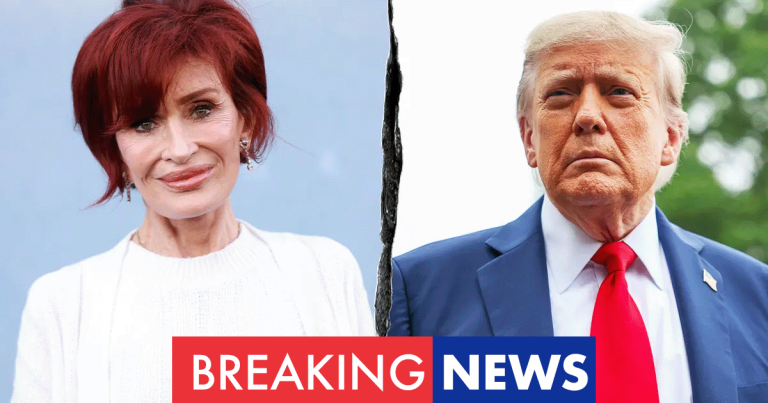
In today’s hyper-polarized entertainment world, celebrities treat their political opinions like religious doctrine, and honestly, it’s exhausting. The chasm between Hollywood’s liberal establishment and conservative America keeps widening, with social media tantrums and public denunciations becoming daily entertainment—if you can call it that.
When rock legend Ozzy Osbourne passed away in July at age 76, his family received the expected flood of industry condolences. But one particular voicemail, recently revealed on The Osbournes Podcast, came from someone the family had publicly battled on virtually every political issue. The caller? Well, that’s where this story gets interesting.
From ‘The Post Millennial’:
The Osbourne family has spoken publicly for the first time about the death of Ozzy Osbourne, on their family podcast revealing that President Donald Trump personally called to offer condolences after the rock legend’s passing. They played the voicemail for listeners…
A voicemail was then played: “Hi Sharon, it’s Donald Trump, and I just wanted to wish you the best and the family a great. Ozzy was amazing. He was an amazing guy. I’ve met him a few times and I want to tell you, he was unique in every way and talented. So I just wanted to wish you the best and it’s a tough thing. I know how close you were and whatever I can do, take care of yourself. Say hello to the family. Thanks, bye.”
Trump called the Osbourne family after Ozzy’s passing, and they shared his heartfelt voicemail on their podcast ❤️🥺 pic.twitter.com/WO1QQNVJOa
— Gina Milan (@ginamilan_) November 12, 2025
An Unexpected Voice of Comfort
Yes, that Donald Trump. The same President Trump that Sharon Osbourne had criticized countless times on television, particularly during her years on “The Talk.” Jack Osbourne, clearly moved by the outreach, told podcast listeners something that cuts through all the political theater: “Love him or hate him, he didn’t have to call and leave a voicemail.”
Think about that for a moment. The President of the United States—a man constantly under attack from Hollywood elites—took time to personally console a family that had opposed him publicly. No cameras, no press release, no political gain. Just one human being reaching out to another in a moment of grief.
When Politics Takes a Back Seat
Sharon’s response reveals something the mainstream media would rather you didn’t know. “Listen, when it comes to politics, we know no one comes out a winner,” she reflected with surprising candor. “Whoever you like, there’s half the people that are going to go like this.”
But here’s where it gets really interesting—and where the media narrative completely falls apart. Sharon admitted what she’d experienced personally with Trump over the years: “All I know is that a man I know, I worked with for a month, and his wife, who was always gracious, elegant, just a delight to talk to. He was always, ‘how are the children, how is Kelly, I’m so proud of Jack and Kelly.’… He was a great guy to talk to, and he has always treated me with respect.”
A woman who’d publicly disagreed with Trump’s politics is telling the world that privately, he’d always shown her family nothing but kindness and respect. She’s acknowledging what many Americans have long suspected—that the cartoon villain portrayed by the media bears little resemblance to the actual man.
This moment of grace reminds us what America used to be before Twitter mobs and cancel culture took over. Political opponents could disagree fiercely yet still show compassion during life’s hardest moments. Trump’s call and Sharon’s gracious acknowledgment prove that beneath all the theatrical battles, we’re still capable of recognizing each other’s humanity. Maybe, just maybe, that’s the lesson we need most right now—that character matters more than political tribes, and decency transcends party lines.
Key Takeaways
- President Trump personally called Sharon Osbourne after Ozzy’s death, despite their public political disagreements
- Even harsh critics acknowledge Trump’s consistent personal kindness and respect for families
- Human decency and compassion should transcend political tribalism in America
- The media’s divisive narratives often contradict private experiences of mutual respect
Sources: The Post Millennial


